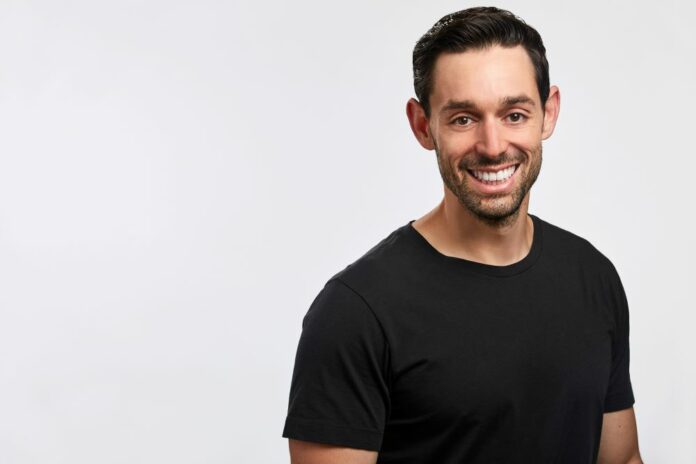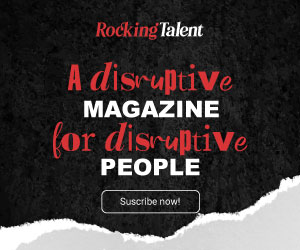There is no doubt that this 2020 has brought many changes to every single aspect of our lives and the organizational area is surely one of them. Jacob Morgan, a futurist, speaker and author of the new best-selling book, The Future Leader, shared with us his point of view about leadership, crisis and the importance of people.
You state about 5 trends that are driving the change in the workplace today. Would you share these with us?
In my previous book, The Future of Work, which came out in 2014, the 5 trends I talked about were: changing demographics, mobility, technology, globalization, and new behaviors. I still think these trends are very much relevant today.
Changing demographics: New attitudes, expectations and ways of working
Mobility: Work anytime, anywhere and on any device
Technology: Shift to the cloud, collaborative technologies, Big Data, the Internet of Things
Globalization: No boundaries
New behaviors: Shaped by social media and the web
What advice/activity would you give to keep employees engaged understanding that from the Millennials an on it´s really common to change jobs? And what would you advice on how to attract new talents?
First of all, there is nothing wrong with changing jobs. Tenure isn’t necessarily the metric that organizations should be using to gauge success. For example, you can have an average performing employee stay at your company for 20 years or you can have a superstar employee who stays at your company for 2 years, has a huge impact, and then moves on. Which one would you rather have? What’s more important is not how long someone stays at your company, but what they do while they are there.
As far as engaging and attracting talent, the best thing any organization can do is focus on employee experience which is a combination of three environments that the organization can control: culture, technology, and physical space.
Is it often said that a person quits her leader, not her job. What do you think about it?
I agree. Most of the research shows that people leave to get away from a toxic leader as opposed to getting away from the company or from their role. This is quite sad because the one person who is supposed to be looking out for us, guiding us, and coaching us, is the person that so many are trying to get away from!
This year you launched the book “The Future Leader” and actually we had a worldwide crisis that required that many leaders change the way they were used to lead. Do you think that “that” future leader is among us right now because the circumstances required it?
Absolutely! It’s one of the things I talk about with leaders today. I wrote my book with a lens aimed at the next 5-10 years and with the current global climate it’s become quite clear that the time horizon and shrunk. The skills and mindsets I talk about in my book are crucial to master today!
What are the most common challenges the leaders will have to overcome in this new normal and what skills are they going to need?
In my book I talk about two sets of challenges which are “futurize” and “humanize”. “Futurize” challenges refer to making sure the organization and the people who work there stay relevant in a rapidly changing world. This includes things like moving from short term to long term thinking, keeping up with the pace of change, and challenging the status quo.
“Humanize” challenges include things like focusing on doing good, making the organization human, and leading diverse teams.
As far how to overcome these challenges there are 9 mindsets and skills that leaders need to embrace which include things like thinking like a futurist, being tech savvy and digitally fluent, emotional intelligence, having a growth mindset, being curious, helping create other leaders, and more.
What do you believe are the pros and the cons of having to lead through a time of crisis or uncertainty? And what are the skill required?
The cons are that you are having to deal with something that you have never experienced. So there is no blue print, no map, and no set of steps you need to follow. This is of course a challenge. But this is also a pro because it will allow you to think outside of the box, to explore new ideas, and to come up with unique solutions with your team.
What is the biggest outcome we´ve learnt from this unique 2020 when it comes to leadership and human resources?
That we need to put people first and focus on employees as individuals and not just workers. Business is still about relationships and we should never forget that.
What would you advice to the new generations due to the scenarios they´re facing in the work world?
Best piece of advice is to practice The Notable 9, which are the 4 mindsets and 5 skills that I talk about in my book.
The world is changing quickly and they must remember that leadership is not about them, it’s about others. Every leader should think of themselves like a lighthouse. On one side their job is to build themselves up so that they can shine their light onto others and onto the sea of uncertainty that we are all a part on. However, they must remember that a lighthouse without ships in the water is useless! As a leader part of your responsibly isn’t just to build yourself up, but to guide others to safety and success.
Ping Pong
A role model: My wife
An advice that was given to you and you would give: be a leader not a follower
An advice that was given to you and you would not give: Don’t do “that” you don’t have the experience or knowledge.
A dream: To become a chess master
A hobby: Chess
A book: The Foundation





